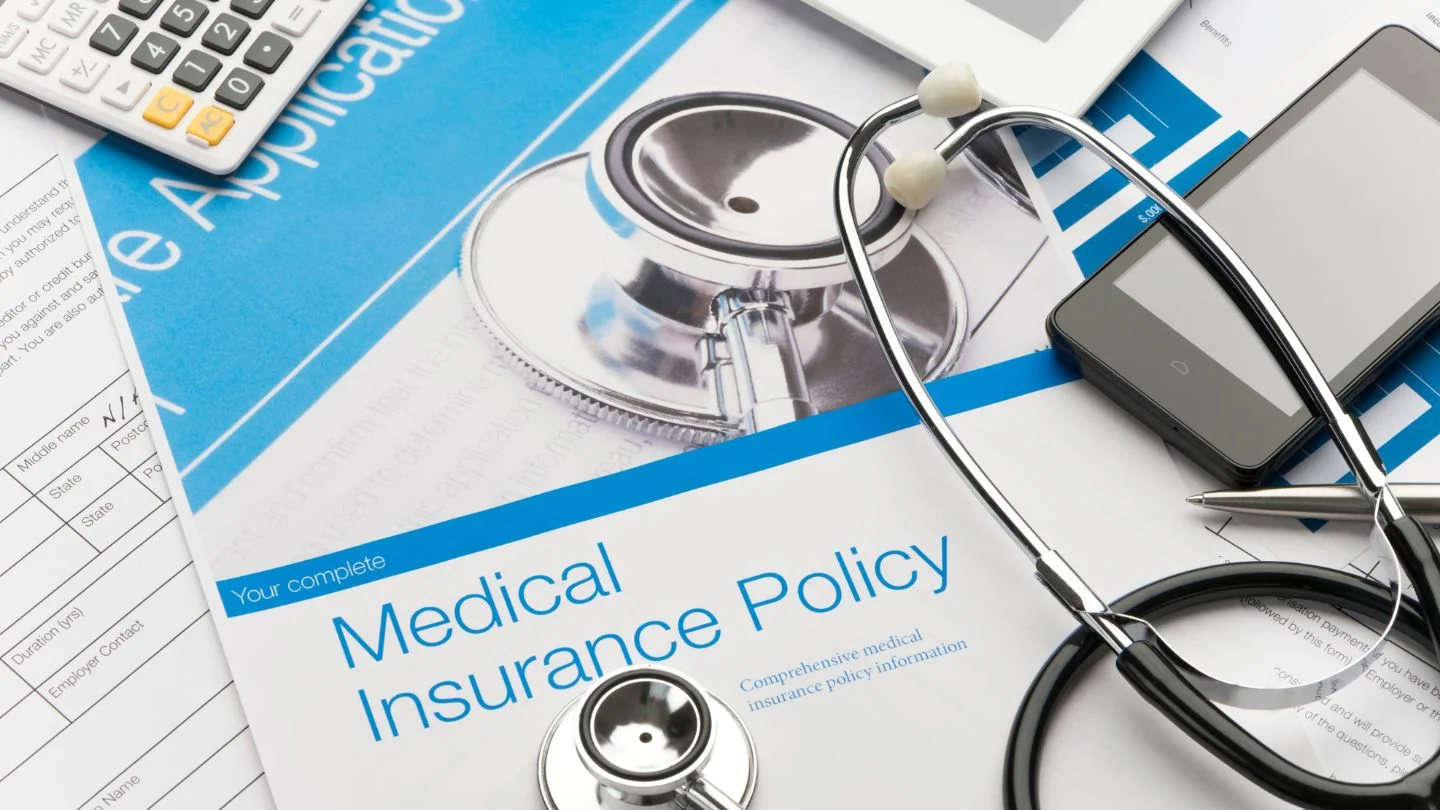Why Healthcare Call Centers Are Crucial for Health Insurance Queries: Best Practices Explained

Call centers specializing in healthcare are vital for addressing health insurance inquiries efficiently, offering prompt and precise information that can decrease waiting periods and enhance patient satisfaction. This blog discusses the significance of healthcare call centers in handling queries related to health insurance and delves into best practices for effectively managing these types of inquiries.
Key Takeaways
- Healthcare call centers streamline the insurance verification process, reducing patient wait times and enhancing overall satisfaction.
- Outsourcing and advanced technologies improve operational efficiency, scalability, and patient engagement, allowing healthcare providers to focus on core functions.
- Compliance with regulations and continuous training for agents is crucial for maintaining patient trust, data security, and high service standards.
The Role of Healthcare Call Centers in Health Insurance
Healthcare call centers have become essential components within the health insurance call center sector, streamlining the process of insurance verification. Equipped with appropriate training and tools, healthcare call center agents are able to provide swift and precise responses to patients’ inquiries, substantially diminishing the time required for sorting out issues related to their health insurance company. These insurance call centers play a pivotal role in simplifying this procedure.
It’s not merely about fielding questions. These call centers significantly contribute toward augmenting patient engagement. By utilizing personal customer relations skills combined with pertinent expertise, healthcare call center agents establish meaningful connections with patients—making them feel respected and understood.
To improve interactions between staff and patients, healthcare call centers bring an element of scalability that might be challenging for in-house teams during busy periods. This flexibility ensures the fulfillment of patient needs without deteriorating service quality standards. Beyond handling calls effectively, healthcare systems heavily rely on valuable insights gathered from business intelligence offered by such facilities—which greatly enhance scheduling efficiency and manage resources more adequately.
Enhancing Customer Experience Through Healthcare Call Centers
The experience of healthcare call center interactions plays a pivotal role in determining patient satisfaction and loyalty. When patients interact with empathetic and efficient call center agents, their perception of the healthcare provider is positively influenced. As these initial exchanges often establish the groundwork for subsequent medical experiences, it’s essential that they are both affirming and constructive.
Through personalized attention and prompt service, healthcare call centers significantly bolster patient engagement as well as contentment levels. By analyzing customer interactions closely, these centers can customize services to address each individual’s unique requirements, effectively improving overall customer experiences. Instant feedback provided to agents regarding adverse incidents helps expedite resolution processes, thereby lifting service quality standards.
Healthcare organizations that consistently enhance their call center operations by scrutinizing agent performance data also notice substantial growth in revenue linked directly to elevated patient satisfaction indices. In an era where immediate response times and tailored resolutions have become benchmarks set by insurance customers’ expectations. Such facilities prove indispensable.
Adherence to stringent healthcare regulations forms an integral aspect of fostering trustworthiness among patients toward a particular care provider or establishment—an imperative that competent management of compliance within these call centers accomplishes convincingly, thus contributing towards heightened degrees of patient gratification and participation.
Efficient Claims Processing and Management
Call centers specialized in healthcare play a pivotal role by ensuring that insurance claims are processed both promptly and with precision, thereby crucially improving the efficiency of operations. By optimizing their workflow, these call centers can expedite the journey from submission to resolution of claims, boosting operational efficacy.
By delegating claims processing tasks to adept professionals, healthcare providers can pivot more focus toward their principal duties. This shift not only escalates productivity but also slashes overhead expenses. It affords scalable solutions for provider organizations within the health sector, adapting fluidly to fluctuating demands while securing swift responses to patient queries.
Adopting an omnichannel approach empowers healthcare call centers by providing uninterrupted access to patient data across diverse communication channels. This strategy trims down on costs related to communications and guarantees agents consistent access to information—vital factors that contribute substantially toward elevating the overall experience for patients.
Multi-channel Support for Health Insurance Queries
Incorporating a variety of communication methods is crucial for healthcare call centers to cater to the different preferences of patients. By providing assistance via email, text, and social media channels, these call centers deliver individualized and prompt responses to patient inquiries.
Healthcare contact center solutions that leverage support across multiple channels typically experience elevated levels of patient satisfaction and a decrease in missed appointments. This strategy supports the ever-changing needs of patients while offering scalability, which is often challenging for in-house personnel to achieve through resources like a dedicated contact center team or an integrated medical call center.
The shift from traditional healthcare call services to modern digital-based contact centers is propelled by the rising need for comprehensive omnichannel support. This progression facilitates an uninterrupted patient journey by ensuring consistent and effective interactions over various touchpoints.
Key Technologies Used in Healthcare Call Centers
Technological advancements are key to upgrading the performance of healthcare call centers. The implementation of automation aids in efficiently managing mundane tasks, which provides agents with more time to tackle intricate support issues, thereby elevating patient care. Artificial intelligence and machine learning contribute by analyzing patient data and forecasting their requirements, thus personalizing service.
Through natural language processing technologies, chatbot conversations become remarkably similar to human dialogues and effectively meet patients’ needs. Offering omnichannel assistance ensures uniform communication through diverse platforms and enhances both patient engagement and care delivery.
By integrating Electronic Health Records (EHR) into call center operations, staff can quickly access vital patient information during calls—optimizing workflows while boosting satisfaction levels among patients. Cloud computing enables consistent agent access to necessary information from any location due to remote availability features—a significant aspect that also empowers intelligent routing systems designed for guiding callers directly toward the most qualified available representatives, ensuring precise responses alongside improved operational efficiency.
Lastly, automated systems for scheduling appointments cut down on human error as well as waiting periods. They allow patients convenient control over booking slots using voice commands or messaging services—an innovation that significantly contributes toward a superior overall experience for the users involved in healthcare interactions.
Ensuring Compliance and Data Security
Adhering to healthcare regulations, such as those mandated by HIPAA, is fundamental to preserving patient confidentiality and steering clear of legal complications. Call centers within the healthcare sector are obliged to stringently follow these guidelines to safeguard patient data and uphold security measures. The privacy rule set forth by HIPAA limits the use and sharing of protected health information without obtaining consent from patients, highlighting the critical nature of compliance within call center operations.
In order to assure compliance, upholding robust quality assurance protocols is key for healthcare call centers. This includes instituting both technical safeguards and physical barriers specifically designed to secure electronic protected health information (ePHI) while also restricting access solely to authorized individuals handling patient data. To mitigate risks associated with data security, employing strong encryption methods coupled with rigorous control over access permissions becomes imperative. Continuous training on cybersecurity remains a pivotal aspect.
Business partners working alongside healthcare providers must align themselves with established HIPAA criteria and swiftly report any compromises concerning sensitive data they encounter. Conducting regular sessions aimed at keeping staff well-informed about current compliance practices helps guarantee that operations at healthcare call centers consistently reflect top-tier standards regarding securing PHI and maintain the utmost levels of discretion pertaining to patient information.
Read More: How HIPAA Compliance Works In Health Call Centers
Training and Development for Call Center Agents
Healthcare call centers must prioritize continual training and development to uphold high standards of service. By engaging in frequent staff education about emerging healthcare trends and technologies, healthcare call center agents are better prepared to offer precise and prompt assistance. Certification programs can serve as a formal acknowledgment of the agents’ expertise, boosting both their confidence and efficacy in their roles.
To ensure they remain current with industry norms and protocols, agents should partake in ongoing educational endeavors such as e-learning modules or workshops led by medical experts. Such role-specific instruction aids center agents in grasping the significance behind the guidance they dispense, thereby elevating the caliber of care provided.
In particular, for those within healthcare call centers, cultivating empathy is crucial since it strengthens an agent’s capacity to comprehend and address patient emotions effectively. This aspect of training markedly improves interactions with patients, leading to heightened levels of contentment among those served.
Measuring Success: Key Performance Indicators (KPIs)
It is vital for healthcare call centers to gauge their success in order to identify how well they are performing and advance the quality of service provided. Metrics such as First Call Resolution (FCR) and Average Handle Time (AHT) serve as key indicators of the efficiency and effectiveness of call center operations. By monitoring these metrics, healthcare calls can consistently refine their processes, thereby aligning more closely with patient expectations.
KPIs like Customer Satisfaction Rate (CSAT), Customer Effort Score (CES), and Net Promoter Score (NPS) offer insights into levels of patient satisfaction and loyalty toward the services offered by call centers. Healthcare call centers that keep track of these scores have the opportunity to harness actionable insights from them, enabling informed decisions that aim at enriching their services while simultaneously fostering enhanced patient outcomes.
Real-world Examples of Successful Healthcare Call Centers
Illustrations from actual healthcare call centers that have embraced cutting-edge technologies and established best practices demonstrate their transformative effects. A particular healthcare call center saw a notable 40% decrease in patient wait times after integrating a cloud-based CRM system, which markedly bolstered patient satisfaction.
In a separate case, the deployment of AI chatbots within another call center enabled swift resolution of inquiries, leading to an upsurge in customer satisfaction ratings. These instances underscore how crucial it is for healthcare call centers to merge technological advancements with industry best practices to improve both service provision and overall patient outcomes.
Implementing Best Practices for Optimal Results
The adoption of best practices within healthcare call centers is crucial for improving patient engagement and boosting customer satisfaction. By utilizing standardized scripts, center agents can navigate objections and inquiries with greater ease, which contributes to higher conversion rates. Embracing remote and hybrid working models not only provides flexibility but also guarantees uninterrupted service provision.
Prioritizing best practices in these call centers is instrumental in advancing operational efficiency as well as patient outcomes. Such measures refine procedures, improve customer interactions, and foster an environment where heightened levels of both customer contentment and active involvement are achievable.
Final Thoughts on Healthcare Call Centers and Health Insurance Queries
In conclusion, healthcare call centers are indispensable for managing health insurance inquiries and improving patient experiences. By adopting advanced technologies, multi-channel support, and best practices, these call centers ensure patients receive timely and accurate information, fostering both satisfaction and operational efficiency. Proper training, compliance, and performance tracking are critical for maintaining high-quality service, ultimately contributing to better patient outcomes and the success of healthcare organizations.
At Sequence Health, we specialize in providing solutions to healthcare call centers designed to meet the unique needs of healthcare providers. Our team ensures seamless communication, optimized patient engagement, and improved operational performance. If you’re looking to enhance your services and deliver exceptional patient care, we are here to help.
Ready to transform your healthcare call center? Contact us today to learn how we can support your organization in delivering better patient outcomes and streamlining health insurance management.
Frequently Asked Questions
Why are healthcare call centers important for health insurance queries?
Call centers specializing in healthcare are vital for ensuring swift and precise verification of health insurance, as well as providing immediate and accurate answers to questions. This significantly enhances patient engagement and satisfaction.
These call centers are paramount when it comes to proficiently managing the intricate aspects of health insurance.
What technologies are used in healthcare call centers?
Healthcare call centers utilize technologies such as AI, automation, natural language processing, integration with Electronic Health Records (EHR), and cloud-based solutions for enhanced efficiency and service delivery.
Implementing these technologies significantly improves patient interaction and data management.
How do healthcare call centers ensure compliance and data security?
Healthcare call centers ensure compliance and data security by adhering to HIPAA regulations, implementing robust encryption protocols, limiting access to patient data, and providing regular staff training on compliance measures.
This comprehensive approach protects sensitive information effectively.
Why is continuous training important for call center agents?
Ongoing education is essential for call center agents to stay updated on emerging trends and technologies, which in turn boosts the quality of service and ensures customer satisfaction.
Organizations that invest in continuous training are positioning their center agents to deliver superior support consistently.
What are some key performance indicators for measuring success in healthcare call centers?
Key performance indicators for measuring success in healthcare call centers include First Call Resolution (FCR), Average Handle Time (AHT), Customer Satisfaction Rate (CSAT), Customer Effort Score (CES), and Net Promoter Score (NPS).
Utilizing these metrics can significantly enhance performance and customer experience.








